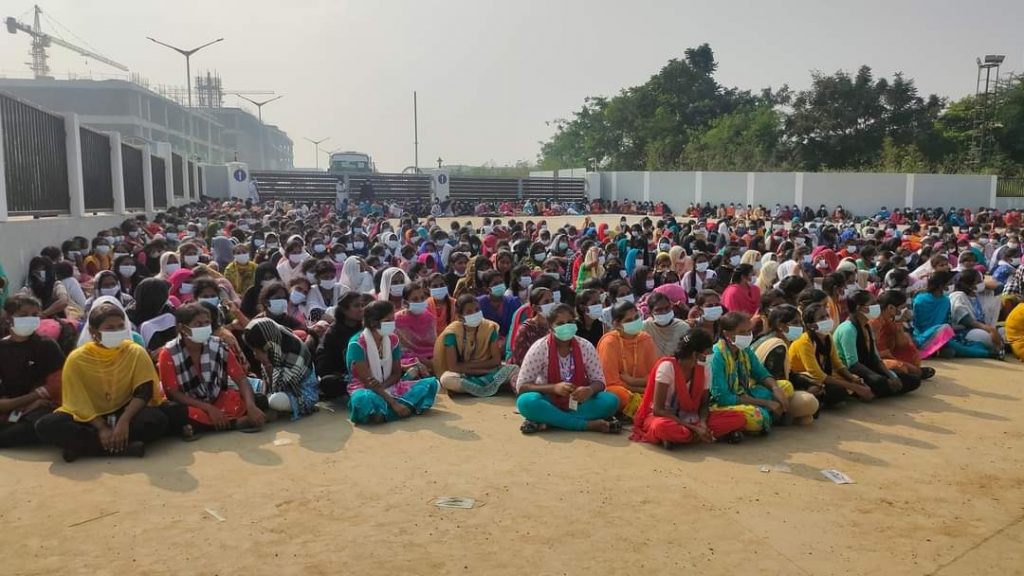Thousands of young women workers at Foxconn’s iPhone assembly plant in Tamil Nadu, India, blocked the Chennai-Bangalore highway, demanding improved working and living conditions and decent employment. Apple and Foxconn could not remain indifferent to the women’s determination and took action to meet their demands.

The plant employs around 16,000 workers, 80 per cent of which are between 18-23 years old. The majority are migrant contract workers employed through third-party contractors or agencies, and lack contracts, identity cards or any proof that they are employed by Foxconn. The workers receive low wages, lack access to social protection and have barriers for joining a union or bargain collectively.
The workers are made to stay in hostels, that they say are crowded and lack even the basic amenities. 20-40 workers are lodged in a room which can accommodate maximum ten people and the rooms lack proper ventilation. Quality and hygienic food is not provided. Workers can only leave in case of an emergency, and salaries are deducted for leave taken.
The contract workers are not allowed to use mobile phones inside factory premises and their movements are restricted. Unions claim that these workers are kept as bonded labourers.
In the third week of December, hundreds of workers were food poisoned in a company provided dormitory, the IMA hostel, housing more than 2,000 women workers. When colleagues asked about their wellbeing, management, the hostel and the contractor continuously refused to respond, triggering protests among the workers.
On 17 December, workers initiated a spontaneous sit-in protest near the factory and blocked the Chennai – Bengaluru highway. The protests spread to other places along the Chennai-Bengaluru highway.
Workers demanded that authorities provide full details about the affected workers and their health status, take action against the contractor and the hostel administration, ensure better infrastructure and improved living and working conditions. They also urged Foxconn to take responsibility for the workers’ safety and well-being.
The 21-year-old worker who quit following the protest, told Reuters that her parents are farmers growing rice and sugarcane. She said she looked for a city job like many others in her village and considered the Foxconn wages good. Several activists and academics said women recruited from farming villages to work in Sriperumbudur’s factories are seen by employers as less likely to unionise or demonstrate, a factor that made the protests at the Foxconn factory – which isn’t unionised – even more notable.
Women workers achieved gains
Apple had announced December that it placed the plant on probation after protests.
Reuters had reported on December that Foxconn as well as 11 of its contractors, including those who provide food and living facilities, were summoned for a meeting with the state government and that officials had asked Foxconn to review services provided to the workers, including power backup at the hostels, food and water.
Workers will start to return gradually as soon as Apple is certain its standards are being met in every dormitory and dining area.
Source: Industriall Union

